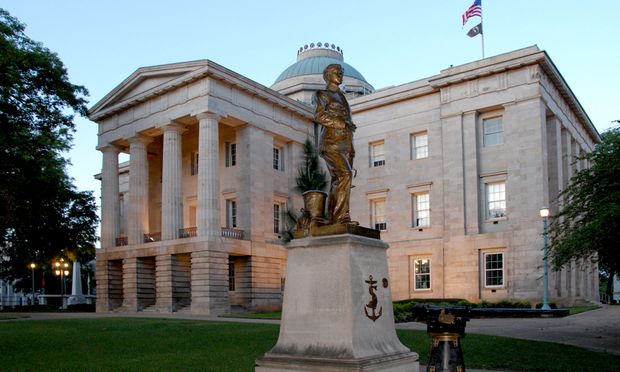North Carolina’s state legislature passed a law last week reversing a Charlotte city ordinance that had afforded some anti-discrimination LGBTQA+ protections. The bill prohibits cities from passing any rights legislation extending the narrow provisions that already exist under state law. It effectively nullifies dozens of municipal rights laws across the state and makes it harder for people to claim discrimination on various grounds in state court. Continuing a trend that is regrettably on the rise nationwide, the bill also prevents cities and towns from passing any local minimum wage hikes.
The American Civil Liberties Union quickly filed a legal challenge to the bill, calling it the “most extreme anti-LGBT measure in the country.” Following suit, several corporations, among them Facebook, Lowe’s and American Airlines, raised doubts about continuing their business in the state; a handful of governors and mayors, including Boston’s, across the country all but banned any official travel to North Carolina; and the NFL and NCAA, among other sports entities, suggested they may not bring lucrative events like the Super Bowl to the state.
The opposition also struck a chord closer to home: Northeastern University’s president, Joseph E. Aoun, issued a statement condemning the law.
“At North-eastern Uni-ver-sity, we believe diversity is a strength to be celebrated, not a source of division,” Aoun said. “Diversity in all its forms – race, gender, religion, political beliefs, sexual ori-en-ta-tion, gender identity – enhances the pursuit of knowledge and prepares people to thrive in a pluralistic society. We join with many other orga-ni-za-tions in North Carolina, and across the country, in expressing our deep concerns about this new law.”
We applaud Northeastern, which operates a remote campus in Charlotte, for taking this stance. In doing so, President Aoun affirmed a commitment to diversity, inclusion and community ties that we often wish were taken more seriously. As journalists and college students, our mission at The News is to hold those in power accountable to the people over whom they have influence. By opposing discrimination and close-mindedness, Northeastern is using its position in North Carolina to both stand up to an oppressive power structure and wield its own social and political capital to protect its students and members of the surrounding city.
Proponents of the North Carolina law may claim outside actors have no place in the debate over what they say is a democratically passed bill representing the will of state residents. This argument falls flat. The university’s satellite campus is very much a local institution, and even if it weren’t, Northeastern’s student population includes North Carolina natives for whose voices the school can and should serve as a proxy. Cynical observers may also believe the impact of Aoun’s words extends only to the university’s reputation.
While it’s true that his statement by itself won’t change anything, there is value in opposing prejudice alongside civil rights groups, businesses, community advocates, the governor of Georgia and others. In the face of a regressive, chilling, bigoted law, the right thing to do is speak out against it; progress builds upon the voices and the work of many, and staying out of the conversation serves even less purpose than entering it from afar does.
Photo courtesy taxcollections.org









